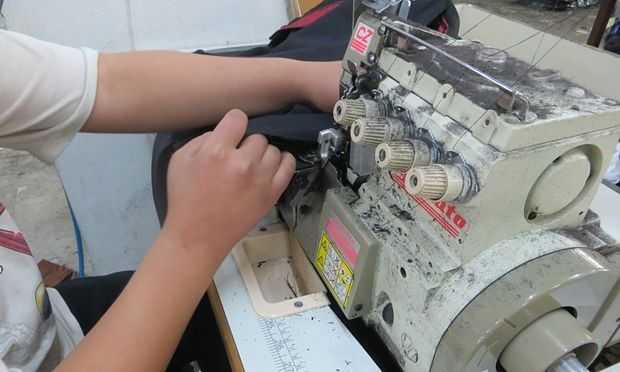
Two of Europe’s biggest garment retailers H&M and Next, have found Syrian refugee children working in their supplier factories in Turkey, according to a report by a company ethics watchdog.
Thousands of Syrian refugees are working illegally in the Turkish garment industry where child labour, low wages and poor conditions are common.

BYPASS THE CENSORS
Sign up to get unfiltered news delivered straight to your inbox.
You can unsubscribe any time. By subscribing you agree to our Terms of Use
Turkey along with China, Cambodia and Bangladesh, is one of the largest producers of clothing sold on the British high street, supplying labels that include Topshop, Burberry, Marks & Spencer and Asos.
RT reports:
Of the 28 major brands questioned by the Business and Human Rights Resource Centre (BHRCC) about conditions at their supplier factories in Turkey and the potential exploitation of undocumented Syrian children and adults, only H&M and Next confessed to finding children working in the factories.
New report: Company action to address exploitation of Syrian refugees in Turkish garment factories: https://t.co/xlqKrlrPOT
— BusinessHumanRights (@BHRRC) February 1, 2016
The admission has sparked concerns that the problem may be much more widespread and that many of the companies are keeping quiet about abuse.
Both H&M and Next said that after identifying the children they took action to return them to school and to support their families.
The BHRCC praised the two retailers “taking concerted action to protect child refugees found in their factories.”
The ethics watchdog estimates that 250,000 to 400,000 Syrian refugees work illegally in Turkey – the third largest supplier of clothing to Europe after China and Bangladesh.
Other companies, including Primark and C&A, said they had identified undocumented adult Syrians in the factories, while M&S, Asos, Denhams and Superdry did not answer the question at all.
“Only a few brands appear to have engaged with the extent and the complexity of these issues in their Turkish supply base; even fewer report taking action to protect these vulnerable workers,” the BHRRC said.
@BHRRC@GuardianSustBizhttps://t.co/MssbHCThmX
— Seema Nair (@seema_n) February 1, 2016
Turkey has taken in the largest number of Syrian refugees in the world, accepting some 2.5 million people who have fled the country in the wake of the five-year civil conflict. Just this month, Ankara finally announced it would be giving refugees the right to work as part of an effort to curb the number of refugees entering Europe.
Meanwhile, the UK continues to face criticism for its stringent refugee policy. More than 120 leading economists have penned a letter urging Prime Minister David Cameron to take in a “fair and proportionate share of refugees, both those already within the EU and those still outside it.”
Niamh Harris
Latest posts by Niamh Harris (see all)
- French President Emmanuel Macron Calls For ‘Isolation’ Of Iran - April 15, 2024
- Russia’s Foreign Ministry Spokeswoman Slams Israeli Envoy’s Call To Condemn Iran Attack - April 15, 2024
- UN Chief Warns Middle East Is On Verge Of Full-Scale War - April 15, 2024


Be the first to comment